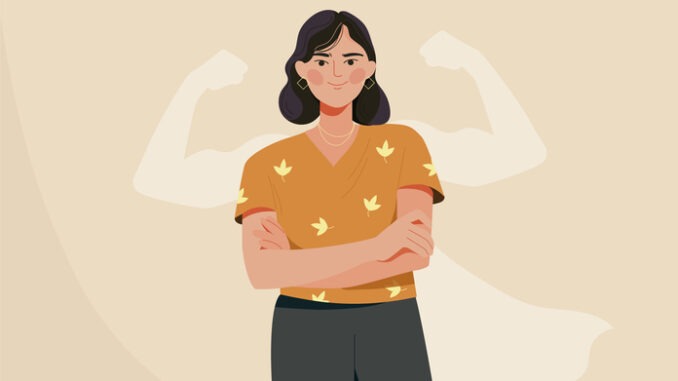
Low self-esteem can become a long-term problem with harmful effects on our mental health and day-to-day lives
CREDIT: This is an edited version of an article that originally appeared on the NHS
Self-esteem is the opinion we have of ourselves. Healthy self-esteem means we feel positive about ourselves and life in general; this means we can better deal with life’s ups and downs. However, with low self-esteem, we see ourselves and our lives more critically.
Causes of low self-esteem
Low self-esteem often begins in childhood and the message that you are not good enough is the one that stays with you. Stress and difficult life events, such as serious illness, a breakup or bereavement, could all negatively affect your self-esteem. Personality is also important; some of us are more prone to negative thinking and set higher, maybe impossible, standards for themselves.
The impact of low self-esteem
If you have low self-esteem you may hide away from social or difficult situations. In the short term, avoiding challenging situations could make you feel safe and comfortable but, in the longer term, it reinforces your underlying doubts and teaches you a poor way of coping with things.
How to have healthy self-esteem
In order to boost your self-esteem, you need to identify the negative beliefs you have about yourself and challenge these. Start to note any negative thoughts you have on a piece of paper, or in a diary, and ask yourself when these ideas started.
Next, write some evidence that challenges these negative beliefs and, on another piece of paper, other positive things you like about yourself, or what other people say about you. Aim for at least five positive things on your list and add to it regularly.
Other ways to improve self-esteem
· Recognise what you’re good at: we’re all good at something – find and acknowledge it! We tend to enjoy doing the things we’re good at, which also helps boost our mood.
· Build positive relationships: if you find certain people bring you down, spend less time with them. Instead, build relationships with people who are positive and appreciate you.
· Be kind: to others and yourself! This means being gentle with yourself, even when you feel like being self-critical. Think about what you’d say to a friend in a similar situation – we often give better advice to others than we do to ourselves.
· Learn to be assertive: this is about respecting other people’s opinions and needs. One piece of advice is to look at other people who act assertively and copy them.
· Start saying ‘No’ people with low self-esteem often feel they have to say ‘Yes’ to other people, even when they do not want to. The risk is that you become overburdened, resentful, angry and depressed. Generally, saying ‘No’ does not ruin relationships, but helps improve your assertiveness, while allowing yourself to do what you want to do.
· Challenge yourself: we all feel nervous at the thought of doing certain things. People with healthy self-esteem do not let this stop them from trying new things or taking on challenges.



Be the first to comment